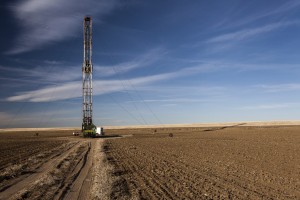Bri Cornish
Sabin Center Summer Intern & Rising 2L at Columbia Law School
 On Monday, June 29th, New York State formalized a ban on high-volume hydraulic fracturing (HVHF) for natural gas, commonly known as “fracking.” The state placed a moratorium on the practice in 2008, and it was unclear whether the ban would eventually become permanent or whether oil and gas industry lobbyists would convince the state to pave the way for future fracking.[1] After a protracted 7-year environmental review process that underwent multiple delays and yielded over 260,000 public comments, the New York State Department of Environmental Conservation (DEC) released their “Findings Statement,” concluding that “there are no feasible or prudent alternatives that would adequately avoid or minimize adverse environmental impacts and that address the scientific uncertainties and risks to public health from [fracking].” With the announcement, New York became the first state with proven gas reserves to ban the drilling practice.
On Monday, June 29th, New York State formalized a ban on high-volume hydraulic fracturing (HVHF) for natural gas, commonly known as “fracking.” The state placed a moratorium on the practice in 2008, and it was unclear whether the ban would eventually become permanent or whether oil and gas industry lobbyists would convince the state to pave the way for future fracking.[1] After a protracted 7-year environmental review process that underwent multiple delays and yielded over 260,000 public comments, the New York State Department of Environmental Conservation (DEC) released their “Findings Statement,” concluding that “there are no feasible or prudent alternatives that would adequately avoid or minimize adverse environmental impacts and that address the scientific uncertainties and risks to public health from [fracking].” With the announcement, New York became the first state with proven gas reserves to ban the drilling practice.
The Findings Statement expressed significant concerns regarding potential environmental and public health impacts from fracking. Issues cited by the report include: (1) respiratory health issues resulting from increased particulate matter in the atmosphere (2) drinking water impacts from chemical pollution of groundwater sources or methane “migration” from fractured rock, (3) chemical spills from the incorporation and transport of chemicals/wastewater, and (4) earthquakes caused by the disruption or fissuring of underground bedrock. The Findings Statement also included multiple references to the climate change impacts of fracking, citing the release of “methane and other volatile organic compound [in]to the atmosphere.” The Statement notes, moreover, that “consumption of fossil fuel, including natural gas, to produce energy contributes to climate change” in addition to the methane emitted from natural gas infrastructure.
In contrast, supporters of fracking in New York and nationwide usually tout the economic growth and job creation that might result from fracking. HVHF supporters in New York strongly disagreed with the decision, calling it “politically motivated.” Several pro-fracking cities in the state even threatened to secede from New York and join neighboring Pennsylvania.
New York’s ban comes in the midst of an ongoing debate about whether fracking should be regulated at the federal. Last month, the Environmental Protection Agency (EPA) released a draft review of fracking indicating that, while fracking “ha[s] the potential to impact drinking water resources,” the agency “did not find evidence that fracking [has] lead to widespread, systemic impacts on drinking water resources in the United States.” Environmental groups had mixed reactions to the EPA’s equivocal conclusions. In March, the Department of the Interior (DOI) released a final rule regulating fracking on federal and tribal lands. DOI cited the need for new regulations to replace the existing 30-year-old regulatory scheme and “provide a framework of safeguards and disclosure protocols that will allow for the continued responsible development of our federal oil and gas resources.”
In the absence of a federal ban on fracking, existing state and local laws create a patchwork regulatory system. Vermont was the first state to ban the drilling practice in 2012. Pennsylvania currently has a moratorium on the process on state lands, and Pittsburg and Philadelphia banned fracking several years ago. Maryland recently approved a 2.5-year fracking ban through October 2017. The small town of Denton, Texas (the birthplace of fracking) passed a referendum to ban the practice in November of last year. Litigation quickly followed, and earlier this month Texas Governor Abbott signed a bill preempting local bans on fracking. Oklahoma Governor Fallin quickly followed suit, passing similar legislation barring fracking bans at the local level.
Municipal and state governments can continue to tailor legislation to local circumstances, based on their assessment of health risks, community will, and economic needs. It remains to be seen how many jurisdictions will find, as New York State has, that the environmental risks posted by fracking outweigh its potential benefits.
[1] Since the prohibition, counties across New York passed zoning laws locally banning the controversial drilling procedure. Last year, New York’s highest court, the Court of Appeals, upheld the local laws banning fracking.

